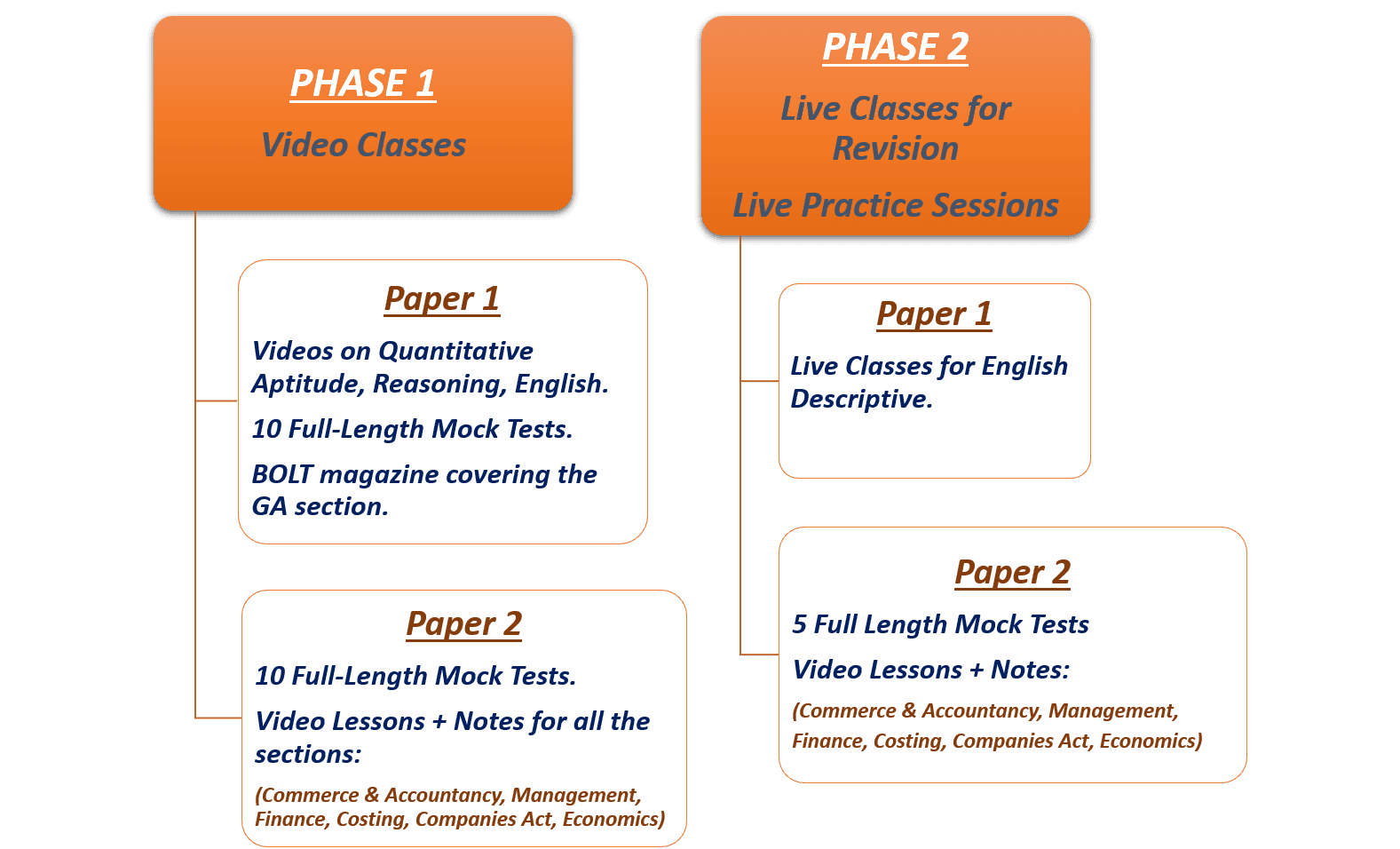The Financial Market is an integral part of the Financial System of any country which is again an important topic in the General Awareness section of Banking and Government Exams especially RBI Grade B, RBI Assistant, SEBI, NABARD, SIDBI etc. In this Ebook, we bring to you a very brief overview of the types of the financial markets so that you become aware of it which in turn will help you in above-mentioned examinations.
I. Securities/Financial Markets Ebook – Free Download
Download the Free Ebook Here:
Join the SEBI Grade A 2020 Online Course Here
Get complete Video Lectures, Study Notes & Mock Tests for Phase 1 & Phase 2.
Steps to download the Free eBook:
a. Sign in or log in using the ‘Download’ button given above.
b. As you log in, click on the “SEBI Free Videos” tab.
c. Find the eBook and download it for free.
More eBooks:
- SEBI Grade A Officer Question Paper PDF
- Introduction to Costing
- Alternate Sources of Finance
- Financial / Accounting Ratios
- List of Sustainable Development Goals 2030
- Basics of Derivatives
A Sneek Peak into the E-book
II. What are Financial Markets?
A financial market is a broad term describing any marketplace where buyers and sellers engage in the trade of assets such as equities, bonds, currencies, derivatives, precious metals etc.
The term market is used exclusively for exchanges or organizations that facilitate the trade in financial securities e.g. A Stock Exchange or Commodity Exchange. This may be a physical location like the New York Stock Exchange (NYSE), Bombay Stock Exchange (BSE), London Stock Exchange (LSE), Tokyo Stock Exchange (TYO) Johannesburg Stock Exchange (JSE) or an Electronic System like NASDAQ.
Types of Financial Markets
1. Capital Markets
A capital market is a financial market in which long-term securities (more than a year) or equity-backed securities are bought and sold. Public sector organizations, as well as the private sector, often sell securities in the capital markets to raise funds. Government and corporations require capital to finance its operations and to engage in its own long-term investments. To do this, a company raises money through the sale of securities – stocks and bonds in the company’s name. These are bought and sold in the capital markets.
Capital Market is composed of both the Primary and Secondary markets.
1.1. Primary Market:
Here securities are sold to investors via a mechanism known as underwriting. The main entities seeking to raise long-term funds on the primary capital markets are governments (municipal corporations, local or national) and business enterprises. Governments issue only bonds, whereas companies often issue both equity and bonds. The main entities purchasing the bonds or stock include pension funds, hedge funds, sovereign wealth funds, and less commonly wealthy individuals and investment banks trading on their own behalf.
1.2. Secondary market:
Here existing securities are bought and sold among investors usually on an exchange or over-the-counter.
1.3. Stock Market:
Stock markets allow investors to buy and sell shares in publicly traded companies. They are one of the most vital areas of a market economy as they provide companies with access to capital and investors with a slice of ownership in the company and the potential of gains based on the company’s future performance.
1.4. Bond Markets:
A bond is a debt instrument in which an investor loans away his money to a corporate or government entity, which borrows the funds for a defined period at a fixed interest rate. Bonds are used by companies, municipalities, states and national governments to finance a variety of projects and activities. Bonds can be bought and sold by investors in Bond markets.
2. Money Markets
The money market is a segment of the financial market in which financial instruments of high liquidity and short-term maturities are traded. The money market is used as a means for lending and borrowing in the short term ranging from a few days to a year. Participants include banks, mutual funds, investment institutions and Central Banks. There are five major segments of the money market which are Certificate of Deposits, Commercial Paper, Swaps, Repo and Government treasury securities.
2.1. Instruments in the Money Market
- Call/Notice Money – These are money market Instruments in which money is raised for a very short term. When the term ranges from 1 day to 14 days it is called as notice money and when it exceeds 14 days it is termed as call money.
- Commercial Bills – A commercial bill is a negotiable, self-liquidating financial instrument. If a company buys goods on credit, these bills improve the liability to make payment at the specified date.
- Treasury Bills – These are short term negotiable financial assets issued by the central bank on behalf of the government for overcoming liquidity shortfalls.
- Commercial Paper – These are unsecured promissory notes issued by large and creditworthy companies at a discount on its face value and redeemable at its face value.
- Certificate of Deposit – It is an unsecured, negotiable financial instrument which a bank and financial institution issues to individuals, corporation, trust, funds etc. at a discount on its face value and its maturity vary from 15 days to one year.
3. Cash Market or Spot Market
Cash or spot market is a type of financial market in which goods are sold for cash and are delivered immediately. Contracts bought and sold in the spot market become immediately effective. Prices for the goods are settled in cash on the spot at current market prices. This is notably different from other markets, in which trades are determined at forward prices as opposed to cash market where trades are determined at the current market prices. There are opportunities for both big losses and big gains in spot markets.
4. Derivatives Markets
The derivatives market is a financial market for derivatives instruments like forwards, futures, options, swaps etc whose value is derived from its underlying asset or assets. A derivative is a contract, but in this case, the contract price is determined by the market price of the core asset. The derivatives market can be divided into two categories that are exchange-traded derivatives and that for over-the-counter derivatives.
5. Foreign Exchange Market and the Inter-bank Market
The foreign exchange market or currency market is a type of financial market that is an over-the-counter (OTC) market for the trading of currencies. The Forex market is the largest, most liquid market in the world. This market determines the foreign exchange rate. It includes all aspects of buying, selling and exchanging currencies at current or determined prices. The main participants in this market are the large international banks. Since currencies are always traded in pairs, the foreign exchange market does not set a currency’s absolute value but rather determines its relative value by setting the market price of one currency if paid for with another.
Most foreign exchange dealers are banks, so this behind-the-scenes market is sometimes called the inter-bank market. The inter-bank market is the financial system and trading of currencies among banks and financial institutions, excluding retail investors and smaller trading parties. While some interbank trading is performed by banks on behalf of large customers, most interbank trading takes place from the banks’ own accounts.
6. The OTC Market
The over-the-counter (OTC) market is a type of secondary market also referred to as a dealer market. The term “over-the-counter” refers to stocks that are not trading on a stock exchange.
So this was all from us in this blog of Types of Financial Markets. We hope that you liked our blog on Types of financial markets. Stay tunes to Oliveboard for more such informative content.
Read More:
- SEBI Recruitment 2020 – Grade A Notification Out
- RBI Grade B Study Plan 2020 – For Phase 1 & Phase 2
III. SEBI Grade A Preparation 2020
1. SEBI Grade A Online Course 2020
Are you preparing for SEBI 2020 Exam? Worried about the Paper 2 Subjects (Commerce & Accounting, Companies Act, Finance & Management & Economics)?
Join the SEBI Grade A 2020 Online Course Here
Get complete Video Lectures, Study Notes & Mock Tests for Phase 1 & Phase 2.
2. For SEBI Paper 1 Practice – Take Free Lock-Down Tests Here.
Take Daily Free Tests for English, Quants, Reasoning and GA – Download Oliveboard App and prepare on the go.

Hello there! I’m a dedicated Government Job aspirant turned passionate writer & content marketer. My blogs are a one-stop destination for accurate and comprehensive information on exams like Regulatory Bodies, Banking, SSC, State PSCs, and more. I’m on a mission to provide you with all the details you need, conveniently in one place. When I’m not writing and marketing, you’ll find me happily experimenting in the kitchen, cooking up delightful treats. Join me on this journey of knowledge and flavors!


